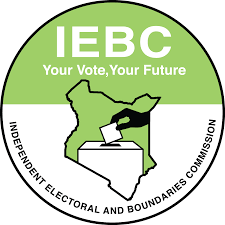The Independent Electoral and Boundaries Commission (IEBC) has appealed to the United Nations Electoral Needs Assessment Mission (NAM) to provide early and targeted support ahead of Kenya’s 2027 General Election.
Speaking during a high-level consultative meeting in Nairobi, IEBC Chairperson Erastus Edung Ethekon emphasised the importance of timely engagement and proactive assistance to ensure credible, transparent, and technology-secure elections.
“We should involve all players in the electoral process to ensure everyone plays their role. I call upon the UN NAM team to support the Commission early enough and not to wait to come on board close to the 2027 general elections,” Ethekon stated.
The meeting brought together senior IEBC officials and a UN delegation led by Akinyemi Adegbola, the Principal Electoral Advisor at the UN Electoral Assistance Division (EAD). The discussions focused on aligning Kenya’s electoral priorities with international support systems to strengthen institutional capacity and counter emerging digital threats.
Ethekon highlighted the growing risks posed by AI-generated deepfakes, misinformation, and disinformation, urging for technical support in digital monitoring and strategic communication. He added that the IEBC had begun establishing stronger operational structures and rebuilding stakeholder confidence since the new Commission’s appointment.
The Commission also requested UN assistance in training its digital monitoring and public information teams to better manage technology-driven challenges.
Earlier, Prime Cabinet Secretary Musalia Mudavadi met with the Adegbola-led delegation at his Nairobi office, reaffirming Kenya’s commitment to transparent and peaceful elections. Mudavadi stressed the need to uphold IEBC’s independence while recognising the critical role of technology and artificial intelligence in shaping modern electoral processes.
Adegbola assured the Commission of the UN’s readiness to begin its assessment, noting that Kenya’s evolving electoral landscape calls for targeted and early interventions rather than last-minute logistical support.

